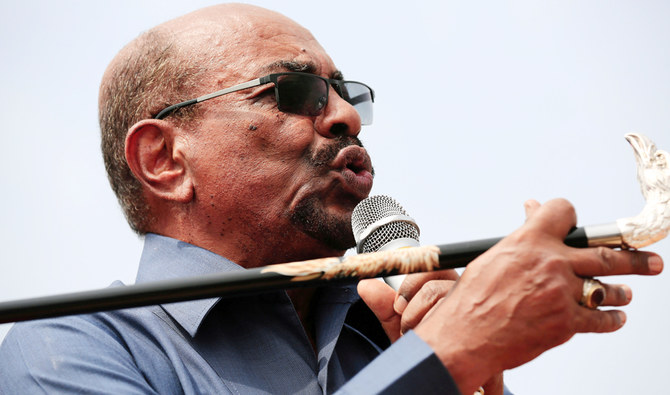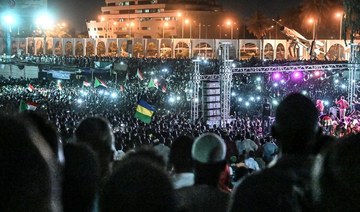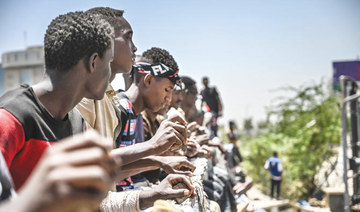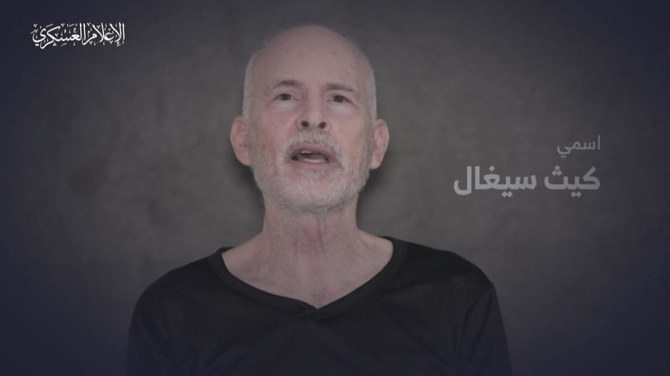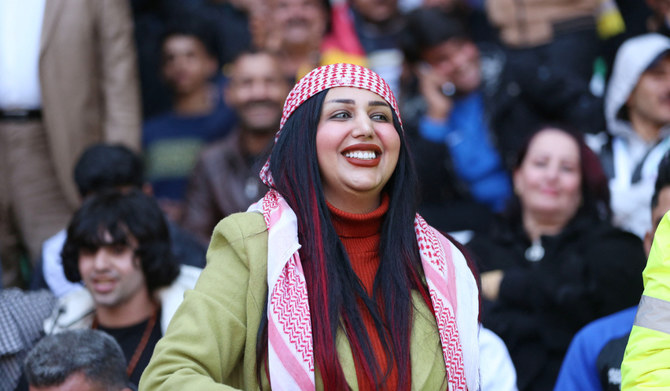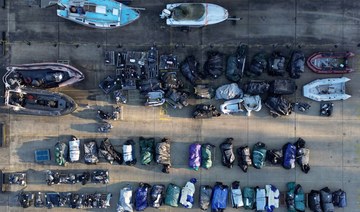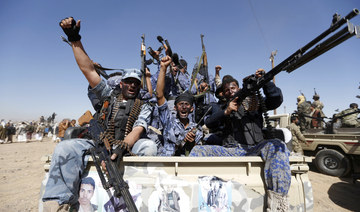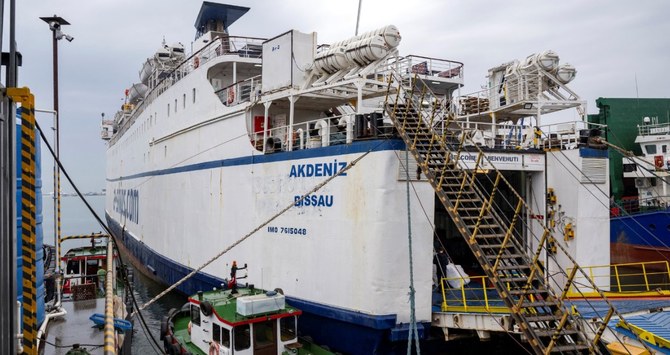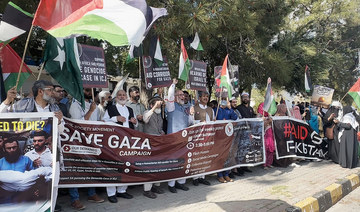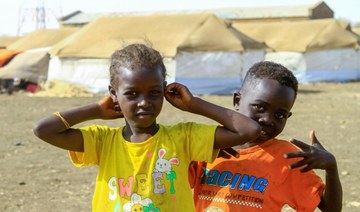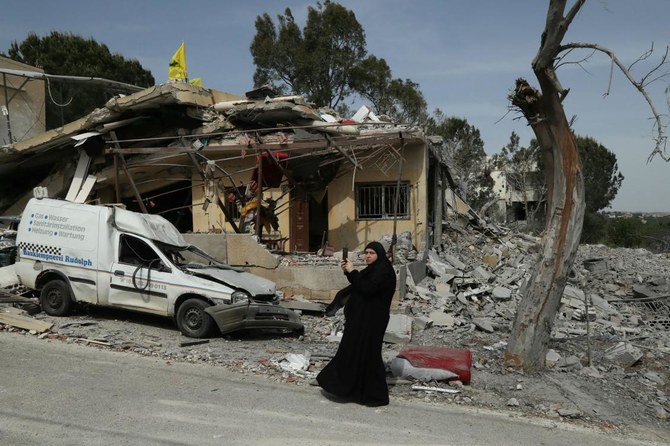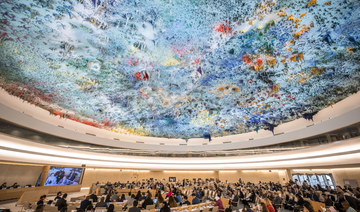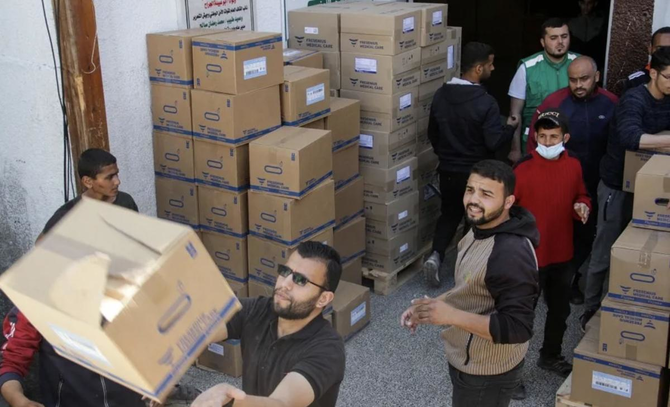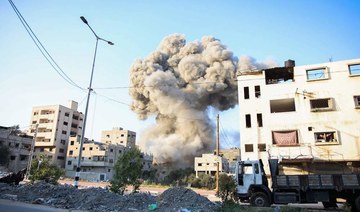KHARTOUM: When Omar Bashir wanted protection from rivals during his long rule as president of Sudan, he turned to Mohamed Hamdan Dagalo, a commander of widely feared Arab militias.
Gen. Dagalo, who goes by the nickname Hemedti, could soon become the most powerful man in Sudan himself following the military coup that ousted his old ally on April 11, Western diplomats and opponents say.
Hemedti has played down his political ambitions. But as deputy head of the Transitional Military Council (TMC) set up by the military to run Sudan for up to two years until elections, he has become the second most powerful man in the country.
The Western envoys and opposition figures, who spoke to Reuters on condition of anonymity, say Hemedti is hungry for more power, and that he helped force out Bashir after 30 years in office because he has set his sights on the presidency.
“Hemedti planned on becoming the No. 1 man in Sudan. He has unlimited ambition,” said an opposition figure who asked not to be named for fear of reprisals.
With the TMC under pressure from the opposition and protesters to hand power to civilians swiftly, Hemedti and other generals risk being sidelined soon.
In his new role, Hemedti has been meeting Western ambassadors and is already well placed to influence events from his office in the presidential palace in the capital Khartoum.
The paramilitary Rapid Support Forces (RSF) he commands are deployed across the city and he is backed by Gulf Arab states that have pledged billions of dollars to support Sudan since the coup.
His rise is a concern for many of the protesters who helped bring down Bashir and are now blocking the Defence Ministry and some surrounding roads as they press demands for a quick transition to civilian rule.
Militias he commanded were accused by human rights groups of genocide during the war than began in Darfur in 2003, allegations that Bashir's government denied.
Hemedti and the RSF did not immediately respond to a request for comment. But in a speech to army officers on Monday, he said: "I personally ... don't want to be vice-president. I ... don't want an inch more than the Rapid Support Forces."
He said the priority was to defend Sudan and reach agreement with the people of Sudan on how the country should be run. But he added: "We won't allow chaos."
He spoke in favour of a "government of competencies, technocratic, for all the people, with no relation to any party."
"EITHER VICTORY OR EGYPT"
Protesters have expressed fears that Sudan is going the same way as Egypt did after the uprising that toppled President Hosni Mubarak in 2011. One of their chants has been "either victory or Egypt".
Egypt's armed forces chief effectively brushed Mubarak aside when it became clear security forces could not contain street protests against the veteran leader.
Two years later, army chief General Abdel Fattah al-Sisi led the overthrow of Egypt's first freely elected president, Mohamed Mursi, with the backing of the United Arab Emirates and Saudi Arabia. Sisi went on to win elections in 2014 and 2018, on both occasions with 97 percent of the vote.
A coalition of protesters and opposition groups said on Sunday the TMC was not serious about handing over power to civilians.
TMC head Abdel-Fattah al-Burhan told state television the formation of a joint military-civilian council -- one of the activists' demands -- was being considered.
But the TMC warned against blocking roads and said people "exercising the role of the police and security services in clear violation of the laws and regulations" was unacceptable.
A senior Western diplomat said it was unlikely the TMC would hand over power to civilians.
"It will be very hard to remove Hemedti from the political theatre because he has a force at his disposal," said the diplomat.
One option the TMC might consider is allowing the formation of a government, provided the generals have the ultimate say on decision-making, some political analysts said.
"If the council (TMC) stays in power, a civilian cabinet will have no authority," said Khalid Omar Youssef, General Secretary of the opposition Sudanese Congress Party.
FROM FIGHTER TO COMMANDER
Born in 1975, Hemedti is much younger than the other officers on the TMC and is the only general on the council who did not graduate from a military college.
He was initially a fighter before becoming a commander of the Arab militias that were later transformed into the RSF and were accused by human rights groups of burning villages, raping and executing civilians in Darfur.
Hemedti's emergence captured the attention of Bashir, whose government denied the allegations of atrocities and said only rebels were being targeted. About 300,000 people were killed in Darfur and 2 million were displaced.
Hemedti won the backing of the United Arab Emirates and Saudi Arabia after sending his forces to fight on their side in Yemen's civil war.
Riyadh and Abu Dhabi have not publicly called for a quick transition to democracy in Sudan. Both countries declined comment on their involvement in Sudan. The Gulf oil powers said on Sunday they had agreed to send Sudan $3 billion worth of aid, throwing a lifeline to the country's new military leaders.
Although the RSF lack the discipline of Sudan's regular army, they are widely seen as fearless fighters hardened by war in Darfur against rebels who rose up against the government. They are armed with AK-47 assault rifles, rocket-propelled grenades and machine guns mounted on pick up trucks.
"Cooperation between Hemedti's Rapid Support Forces and the army is strong and there is no way they will agree to hand over power," said the diplomat.
Opposition figures said Hemedti could wield huge influence behind the scenes if he did not win power personally. Such an arrangement would have parallels with Algeria, where the military has been a kingmaker for decades and forced President Abdelaziz Bouteflika to resign this month following protests.



